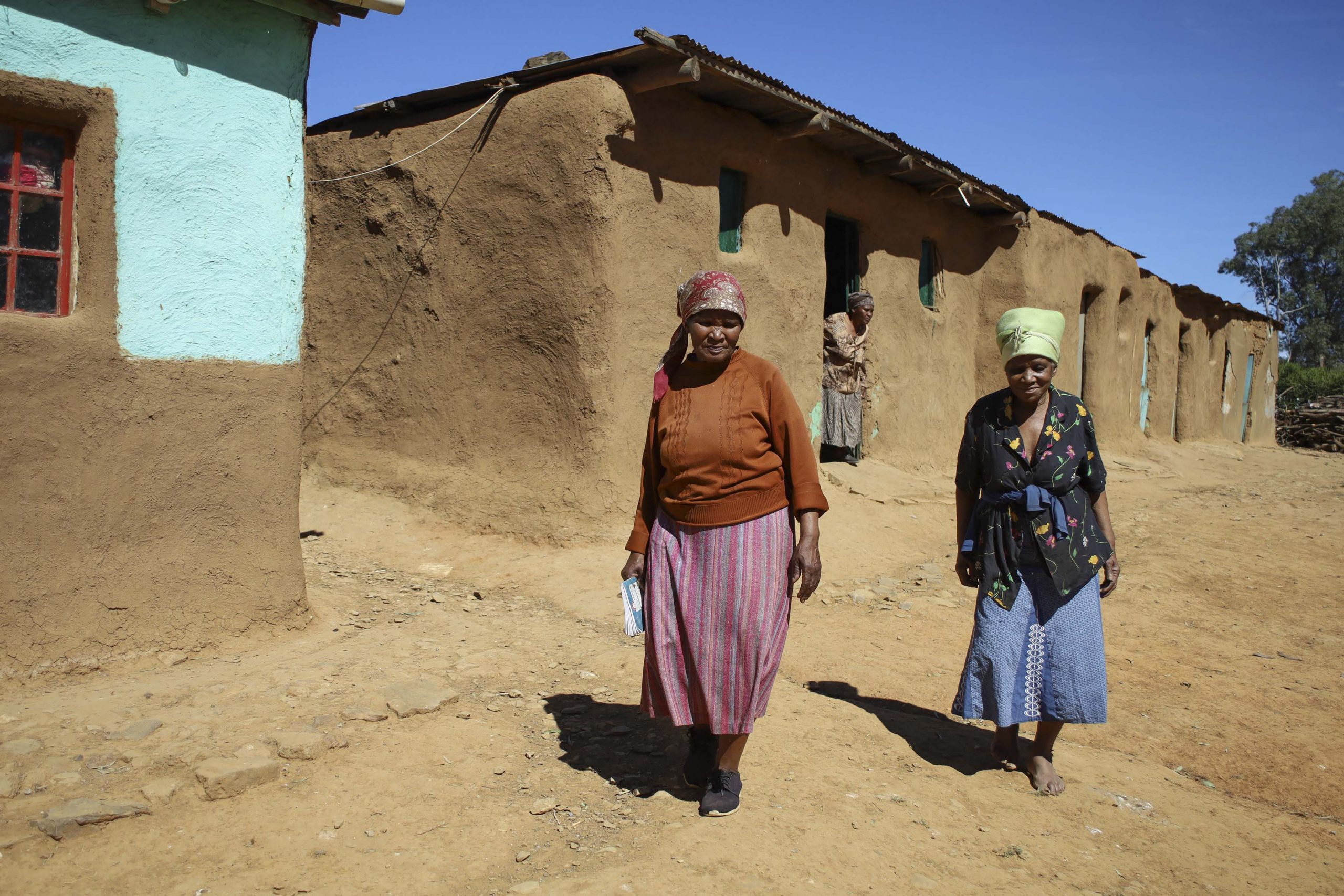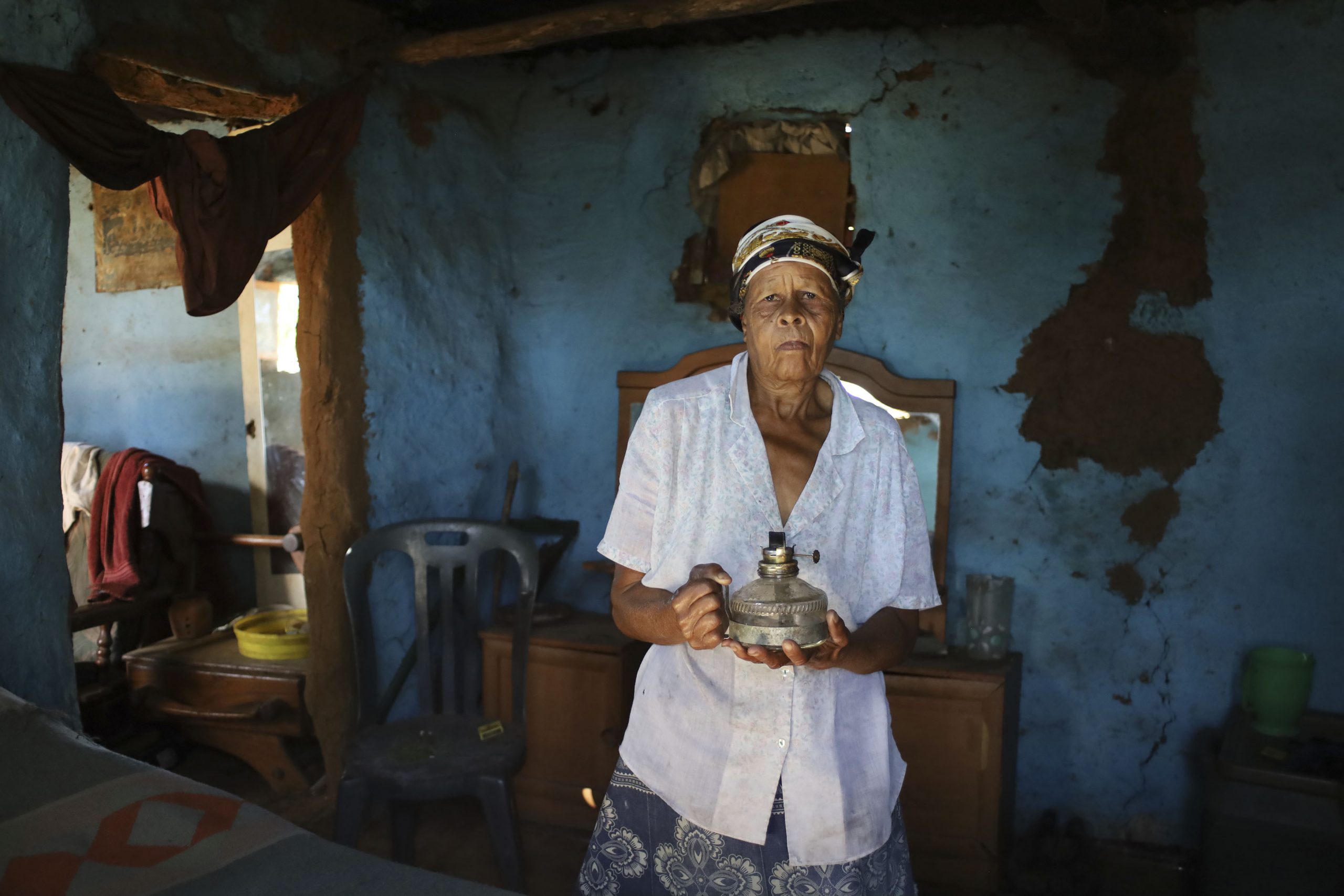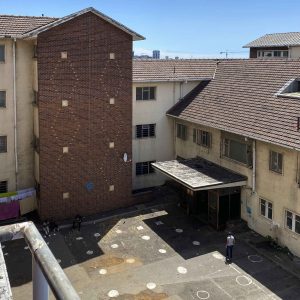Retired workers face eviction from pineapple farm
The Bathurst retirees say ‘South Africa’s biggest pineapple producer’ has disconnected their electricity and told them to demolish their mud homes.
Author:
18 March 2021

The Extension of Security of Tenure Act says farm workers who are over 60 years old and have lived on one farm for more than 10 years or can no longer work because of ill health, may remain in their homes on the farm indefinitely. The act only extends to immediate family members and extended family members within reason.
But in Bathurst in the Eastern Cape, a small group of retired farm workers say farm owner Mark Harris has threatened to evict them, allegedly flouting the regulations of the act. They say Harris has disconnected their electricity and fenced them into a smaller area so they can no longer grow the same amount of crops or collect firewood.
Farmer’s Weekly magazine named Harris “South Africa’s biggest pineapple producer” in 2019. He moved from the Free State to the pineapple-producing region in the 1980s, marrying a descendant of one of the 1820 settlers. The 1820 settlers started many of the 25 large pineapple farms in Bathurst, some of which are still owned by their descendants today.

Only five retired farm worker families remain on the patch of land next to the R67 highway between Makhanda and Bathurst, a few kilometres from Harris’ Prospect farm. The remains of one demolished house are visible. Many of the workers are elderly, between 70 and 89 years old.
Nontombi Golela, 71, was born on the farm to farm workers. Her family is one of two who live in leaky mud houses. She produces the identity document of her mother, Elsie Golela, who was born in 1902 and came to work on the farm when she got married almost 100 years ago.
“We don’t have electricity. This white man cut off the electricity … Now we don’t have power, we don’t have firewood, life is hard. Even my house is falling apart … it has holes … When it rains, the water comes through the roof and I have to put dishes … [to prevent water from going straight onto the floor],” Golela says, speaking inside her derelict mud house.

She introduces her 84-year-old brother, who is bedridden and lies in a single bed under the leaking roof.
“It is a painful situation. We do not own any farm animals, we are sitting with nothing. My mother got married here, she was born in 1902. We were born here and my mother died here. Umlungu [translated as this white man, meaning Mark Harris] doesn’t want us here any more and he says we must go to Bathurst. There is no place for us in Bathurst. What are we going to do at Bathurst? I don’t know what to do. It’s a crisis. Not a single person is employed in our family,” says Golela.
Born on the farm
The next mud house is occupied by the Mgadi family: Dorah, 89, Boniwe, 79, and Ntombisana, 76. They care for six grandchildren, including 18-year-old Nosiphiwo who has cerebral palsy, is less than 1m tall and lies all day on two old armchairs pushed together.
All of them were born on the farm. “I’ve been on this farm forever and Umlungu doesn’t do anything for us. Our house is falling apart and he doesn’t care for us, he doesn’t respond when we tell him that the roof leaks,” says Dorah Mgadi.
Ntombisana Mgadi shows us a fence she says Harris erected recently that prevents the former farm workers from accessing land where they used to graze their goats, plant crops and collect firewood.
Related article:
“Mark Harris took our electricity. What he did after taking the electricity, he barricaded around our houses with a fence so that we cannot go to that land. We cannot collect wood to make fires to cook. There was also a piece of the land for initiation camps for our children, but he has put a fence around that land and it is no longer available. He says that he does not want anyone to continue extending their house, and he will come and demolish it if they do.
“He does not want us to have goats or cattle any more, and what is worse now is that he even says we cannot have dogs. I was born on the farm and I even retired here. I have worked for three different owners of this farm,” says Mgadi.
The retirees have just two 5 000-litre water tanks, which the municipality fills. They have turned to 28-year-old EFF councillor and long-standing community activist Xolisa Runeli for help. Runeli is trying to arrange pro bono legal representation for the group to claim their rights under the act to remain in their homes.
Rights under the act
Retired farm workers who qualify as long-term occupiers under the act cannot be evicted unless they commit crimes on the farm. Farmers are not allowed to disconnect their electricity, water or sanitation, or prevent them from receiving visitors or visiting ancestral graves on the farm.
Courts will not grant eviction orders against long-term farm occupiers “unless there is alternative accommodation available where the occupiers can enjoy the same quality of life,” says advocacy group People Against Suffering, Oppression and Poverty.
However, Runeli says Harris is undermining the act by threatening the occupiers with eviction and promising them R31 000 each if they leave.
Related article:
The remaining residents say they will not go because this small amount of money will not be nearly enough to buy them houses in a township with enough land to keep livestock and grow vegetables, he says.
“They are told to demolish their houses and hire a car from the township to fetch their goods. When they have done this and packed the car, they are told to call their master and he will verify that the home has been demolished. After that he gives them the R31 000 to go and start their new lives in the township in Bathurst,” says Runeli.

‘We don’t get informed’
Nomhle Tiso, 49, came to live with the small group after marrying a farm worker. She is one of only two residents who have solar-powered electricity. But she says it doesn’t work and points to a fridge and kettle that cannot be switched on.
“We don’t know why our electricity was cut off. They just installed solar without consulting us. We were used to buying meat in bulk and storing it in the fridge, because we don’t always have money to buy meat. But our electric appliances and kettles are not working because there is no power. We don’t get informed about important decisions that affect us, as if we are unable to communicate or we are a people who know nothing,” Tiso says.
“Another thing … our umlungu says he doesn’t like our dogs. We are raising chickens here and we are human, and the reason we have dogs is so that when we are sleeping at night and a thief comes to steal our chickens, the dogs bark alerting us to the thieves. We don’t have dogs because we want to cause trouble for him. These dogs are useful to us. We would like to sit down with Umlungu to talk to him about our needs and worries. But he just comes here complaining about dogs and instructing us what to do.”

Harris did not want to be interviewed. He did not respond to questions about the alleged electricity disconnections and new fence, his alleged ban on the retired farm workers keeping livestock and dogs, or his alleged instruction that the group take R31 000 each and leave the farm.
“In response to your request for a meeting I regret to inform you that I will not personally be engaging with either yourself or the publication you represent on this or any other related matter. I am sure there is no need for me to remind you of the relevant legal protocols applicable to access to private property and the public dissemination of photographs without my prior consent,” says Harris, referring New Frame to his attorney, Marius Coetzee of De Jager Lordan attorneys, a member of the Phatshoane Henney group of law firms.
Clause 6.2b of the act says long-term residents may receive visitors and the owner of the farm can only impose reasonable conditions on the visit to safeguard life or property or prevent undue disruption of work.
Despite this, Coetzee insisted that the media was not allowed to interview the retired farm workers in their homes and asked to know the “reason and the purpose of such interview”.
“You are obviously at liberty to meet whoever you may wish at another location. Our instructions are that you will not be permitted access to our client’s property,” says Coetzee.
Correction, 19 March 2021: This article previously said the Extension of Security of Tenure Act only requires long-term occupiers to meet one condition.


